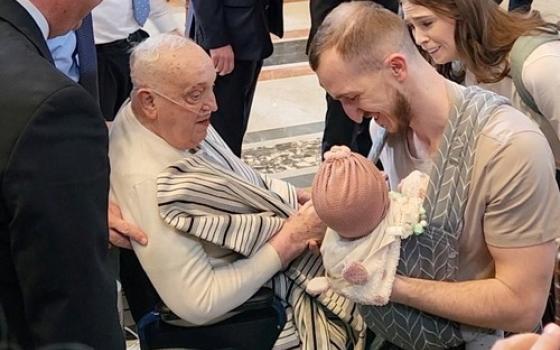There’s a certain “fecklessness” about a number of U.S. theologians, says George Weigel.
In fact, he says in an article posted Tuesday for National Review Online following a meeting of the largest membership group of U.S. theologians last weekend, there’s even an atmosphere of “gauchisme” about the group.
At the heart of Weigel’s concern is the fact that, during their meeting, theologians of the Catholic Theological Society of America (CTSA) decided to table a resolution brought forward by several members that would have expressed support for the U.S. bishops’ campaign against a controversial federal mandate requiring coverage of contraceptives in health care plans.
The column, titled “Don’t Know Much About Theology…,” has already spurred a response from one of theologians in attendance at the meeting, Saint Louis University’s Tobias Winright.
In his article, Weigel writes that the eleven authors of the resolution were “brave souls willing to challenge their colleagues’ conventional gauchisme” and were turned away by their colleagues with “fecklessness.”
As something of an aside, I’d like to offer some of what’s leftover in my reporter’s notebook from the meeting regarding the resolution. While I don’t have any informed comment on the theologians’ supposed “gauchisme,” what I saw certainly wasn’t “feckless.”
The resolution, which expressed “deep concern” regarding the Department of Health and Human Services mandate regarding the coverage of contraception in health care plans, was first discussed at a meeting of the CTSA “resolution’s committee” the afternoon of June 8, the second of the gathering’s four days.
That meeting, which was attended by some forty of the theologians, saw the official reading of the proposed resolution and then a debate over whether it should be brought to the full “business meeting” of the society.
At the outset of the meeting, Richard Gaillardetz, who was then the vice president of the society and is now its president-elect, made clear that the purpose of the committee was not to enter into prolonged debate about the matter, but just to make sure the resolution wasn’t “frivolous.”
What followed was a series of intellectual and non-heated comments from many in the room. Each time a comment was made, there was time for reaction from people with opposite views. Although there were certainly disagreements, I didn’t notice any vindictive statements or attempts to neglect someone’s concerns about either the mandate or the bishops’ reaction to it.
At several points, some theologians even mentioned that they just wanted to make sure that the resolution that came before the full group was the strongest possible.
One example of this was found in the response given by Terrence Tilley, the chair of the department of theology at Fordham University. After noting that he had several points of disagreement with the resolution’s language, Tilley paused and said that “there’s an issue in this vicinity that I could support” but said he thought the original resolution’s language just didn’t capture it.
After several more people had had time to comment, Tilley then suggested a rewrite to the resolution. The eleven people then had time to consider the comments and decide how to proceed.
Their resolution, slightly changed, passed through the committee with no objections. When it was brought to the full membership later that evening there was debate. And opposition. And opposition to the opposition.
But I didn’t hear anything that seemed “unthinking and irresponsible.”




